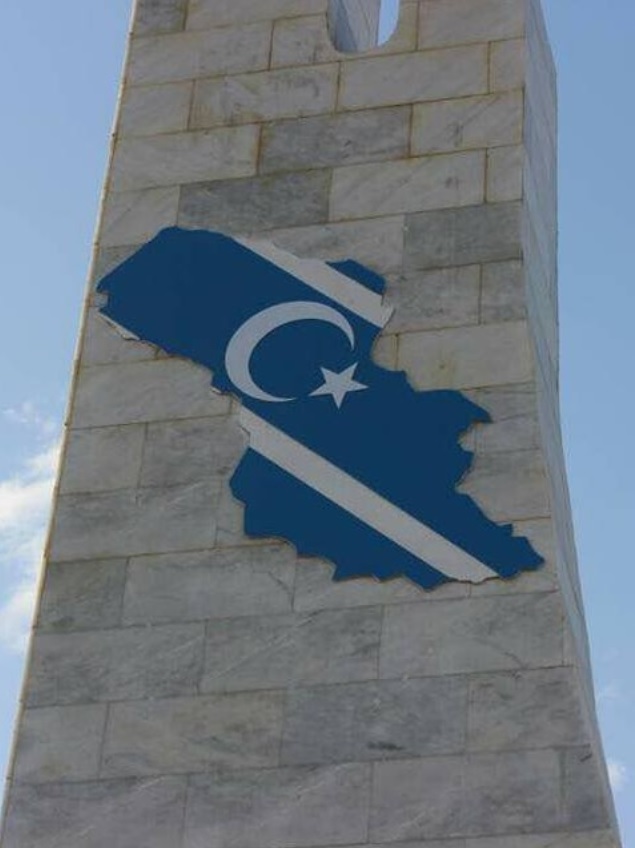|
Turkomania (other)
Turkomania refers to Turkmenistan, a country in Central Asia. Turkomania or Turcomania may also refer to: * Two competing 14th—15th century confederations of primarily Oghuz Turks, Oghuz Turkic tribes in Western Asia: ** Kara Koyunlu, meaning "of the black sheep," who dominated northwestern Iran (modern-day Iranian Azerbaijan), Kurdistan, and South Caucasus ** Ak Koyunlu, meaning "of the white sheep," who dominated southeastern Turkey, and later all of eastern Turkey, the Caucasus, modern-day Iraq, and Iran * Turcomania, or Turkmeneli, a political term used to define the territory in which the Iraqi Turkmens historically have had a dominant population See also * Turkmenia (other) {{disambiguation ... [...More Info...] [...Related Items...] OR: [Wikipedia] [Google] [Baidu] |
Turkmenistan
Turkmenistan ( or ; tk, Türkmenistan / Түркменистан, ) is a country located in Central Asia, bordered by Kazakhstan to the northwest, Uzbekistan to the north, east and northeast, Afghanistan to the southeast, Iran to the south and southwest and the Caspian Sea to the west. Ashgabat is the capital and largest city. The population is about 6 million, the lowest of the Central Asian republics, and Turkmenistan is one of the most sparsely populated nations in Asia. Turkmenistan has long served as a thoroughfare for other nations and cultures. Merv is one of the oldest oasis-cities in Central Asia, and was once the biggest city in the world. It was also one of the great cities of the Islamic world and an important stop on the Silk Road. Annexed by the Russian Empire in 1881, Turkmenistan figured prominently in the anti-Bolshevik movement in Central Asia. In 1925, Turkmenistan became a constituent republic of the Soviet Union, the Turkmen Soviet Socialist Repu ... [...More Info...] [...Related Items...] OR: [Wikipedia] [Google] [Baidu] |
Oghuz Turks
The Oghuz or Ghuzz Turks (Middle Turkic languages, Middle Turkic: ٱغُز, ''Oγuz'', ota, اوغوز, Oġuz) were a western Turkic people that spoke the Oghuz languages, Oghuz branch of the Turkic languages, Turkic language family. In the 8th century, they formed a Turkic tribal confederation, tribal confederation conventionally named the Oghuz Yabgu State in Central Asia. The name ''Oghuz'' is a Common Turkic word for "tribe". Byzantine Empire, Byzantine sources call the Oghuz the Uzes (Οὐ̑ζοι, ''Ouzoi''). By the 10th century, Islamic sources were calling them Muslim Turkmens, as opposed to Tengrist or Buddhist. By the 12th century, this term had passed into Byzantine usage and the Oghuzes were overwhelmingly Muslim. The term "Oghuz" was gradually supplanted among the Turks themselves by the terms ''Turkmen'' and ''Turkoman (ethnonym), Turcoman'', ( ota, تركمن, Türkmen or ''Türkmân'') from the mid-10th century on, a process which was completed by the beginn ... [...More Info...] [...Related Items...] OR: [Wikipedia] [Google] [Baidu] |
Kara Koyunlu
The Qara Qoyunlu or Kara Koyunlu ( az, Qaraqoyunlular , fa, قره قویونلو), also known as the Black Sheep Turkomans, were a culturally Persianate, Muslim Turkoman "Kara Koyunlu, also spelled Qara Qoyunlu, Turkish Karakoyunlular, English Black Sheep, Turkmen tribal federation that ruled Azerbaijan, Armenia, and Iraq from about 1375 to 1468." "Better known as Turkomans... the interim Ak-Koyunlu and Karakoyunlu dynasties..." monarchy that ruled over the territory comprising present-day Azerbaijan, Georgia, Armenia, northwestern Iran, eastern Turkey, and northeastern Iraq from about 1374 to 1468. History Etymology The name Qara Qoyunlu literally means " hose withblack sheep". It has been suggested that this name refers to old totemic symbols, but according to Rashid al-Din Hamadani, the Turks were forbidden to eat the flesh of their totem-animals, and so this is unlikely given the importance of mutton in the diet of pastoral nomads. Another hypothesis is that the nam ... [...More Info...] [...Related Items...] OR: [Wikipedia] [Google] [Baidu] |
Ak Koyunlu
The Aq Qoyunlu ( az, Ağqoyunlular , ) was a culturally Persianate,Kaushik Roy, ''Military Transition in Early Modern Asia, 1400–1750'', (Bloomsbury, 2014), 38; "Post-Mongol Persia and Iraq were ruled by two tribal confederations: Akkoyunlu (White Sheep) (1378–1507) and Qaraoyunlu (Black Sheep). They were Persianate Turkoman Confederations of Anatolia (Asia Minor) and Azerbaijan." SunniMichael M. Gunter, ''Historical dictionary of the Kurds'' (2010), p. 29 Turkoman tribal confederation founded in the Diyarbakir region by Qara Yuluk Uthman Beg that ruled parts of present-day eastern Turkey from 1378 to 1503, and in their last decades also ruled Armenia, Azerbaijan, much of Iran, Iraq, and Oman where the ruler of Hormuz recognised Aq Qoyunlu suzerainty. The Aq Qoyunlu empire reached its zenith under Uzun Hasan. History Etymology The name Aq Qoyunlu, literally meaning "hose withwhite sheep", is first mentioned in late 14th century sources. It has been suggested that this nam ... [...More Info...] [...Related Items...] OR: [Wikipedia] [Google] [Baidu] |
Turkmeneli
Turkmeneli, also known as Turkmenland, and historically as Turcomania, ( tr, Türkmeneli, lit=Land of the Turkmens) is a political term used to define the vast swath of territory in which the Iraqi Turkmens historically have had a dominant population. The term incorporates the Iraqi Turkmen/Turkoman homelands running from Iraq's border with Turkey and Syria and diagonally down the country to the border with Iran. In particular, the Turkmen/Turkoman consider the capital of Turkmeneli to be disputed city of Kirkuk and its boundaries also include Tal Afar, Mosul (second largest city in Iraq), Erbil (capital of Kurdistan Region), Mandali, and Tuz Khurmatu. According to Liam Anderson and Gareth Stansfield, the Turkmen/Turkoman note that the term "Turcomania" – an Anglicized version of "Turkmeneli" – appears on a map of the region published by William Guthrie in 1785, however, there is no clear reference to Turkmeneli until the end of the twentieth century. Regions of Iraq The ... [...More Info...] [...Related Items...] OR: [Wikipedia] [Google] [Baidu] |


